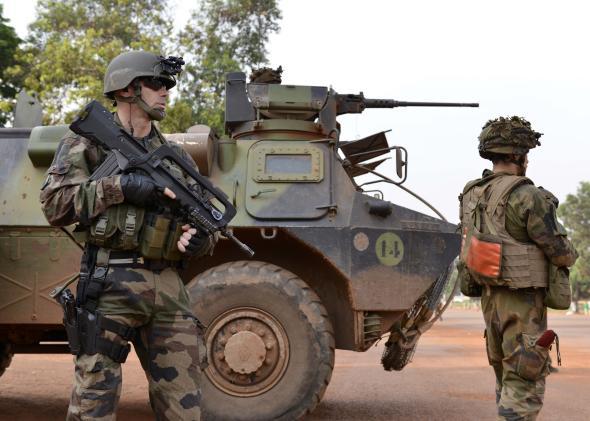Reuters writes up a new U.N. report that details an unintended consequence of the French intervention in the Central African Republic:
The team also found that French peacekeepers’ disarming of some Muslim fighters had the unintended side-effect of enabling their Christian enemies to kill them and their families in retaliatory attacks. French tactics subsequently changed. … The U.N. team also received reports that French disarmament of ex-Séléka forces left Muslim communities vulnerable.
[Rupert] Colville, the U.N. human rights spokesman, defended the French peacekeepers.
“They were obviously trying to disarm armed men, which was a good thing. There were anti-balaka elements or even civilians who took advantage of that to attack and kill people who had been disarmed, or their dependants.
“So I think obviously it wasn’t foreseen but I believe the tactics have changed since it became apparent that that was happening.”
The primarily Muslim Séléka rebels seized power in the CAR in March, installing President Michel Djotodia, who himself resigned last week amid intense international pressure and escalating and increasingly chaotic violence and reprisal attacks between the Séléka and the “anti-balaka” Christian militia. The U.N. report also found that citizens from neighboring Chad, including peacekeepers, had participated in atrocities by the Séléka.
Whatever the intention of the French troops, the news is another illustration of how easy it is for peacekeepers’ actions to have unintended consequences in fluid conflict situations.
In many cases, researchers have found that third-party intervention can actually prolong conflict. In this case, disarming the Séléka fighters after they had taken power—while certainly a worthy goal—may have empowered their enemies, contributing not just to particular acts of violence but to a general state of stalemate.
The French government would be wise to prepare for more dilemmas of this type. With about 10,000 French troops now operating in Africa, they may continue to be drawn into complex conflicts in ways quite different than what policymakers in Paris had in mind.
